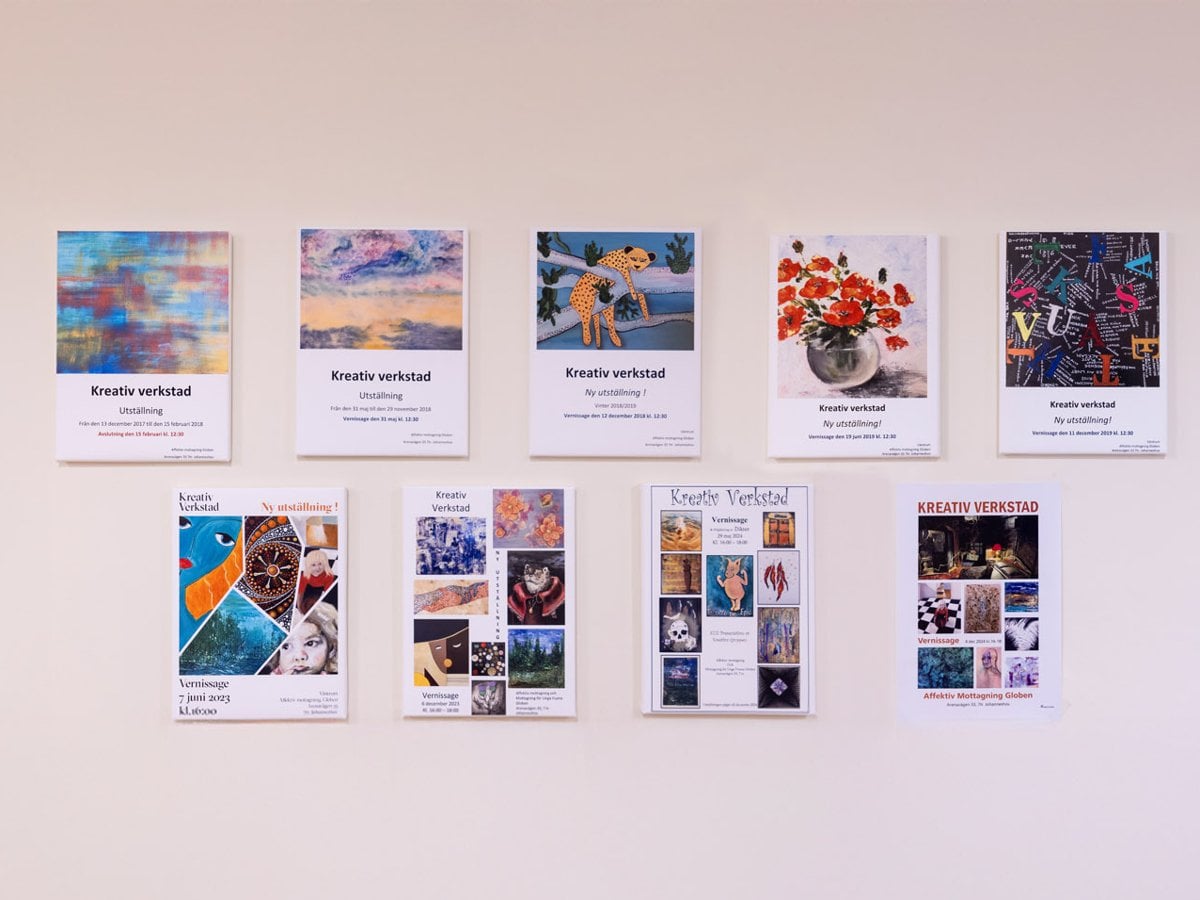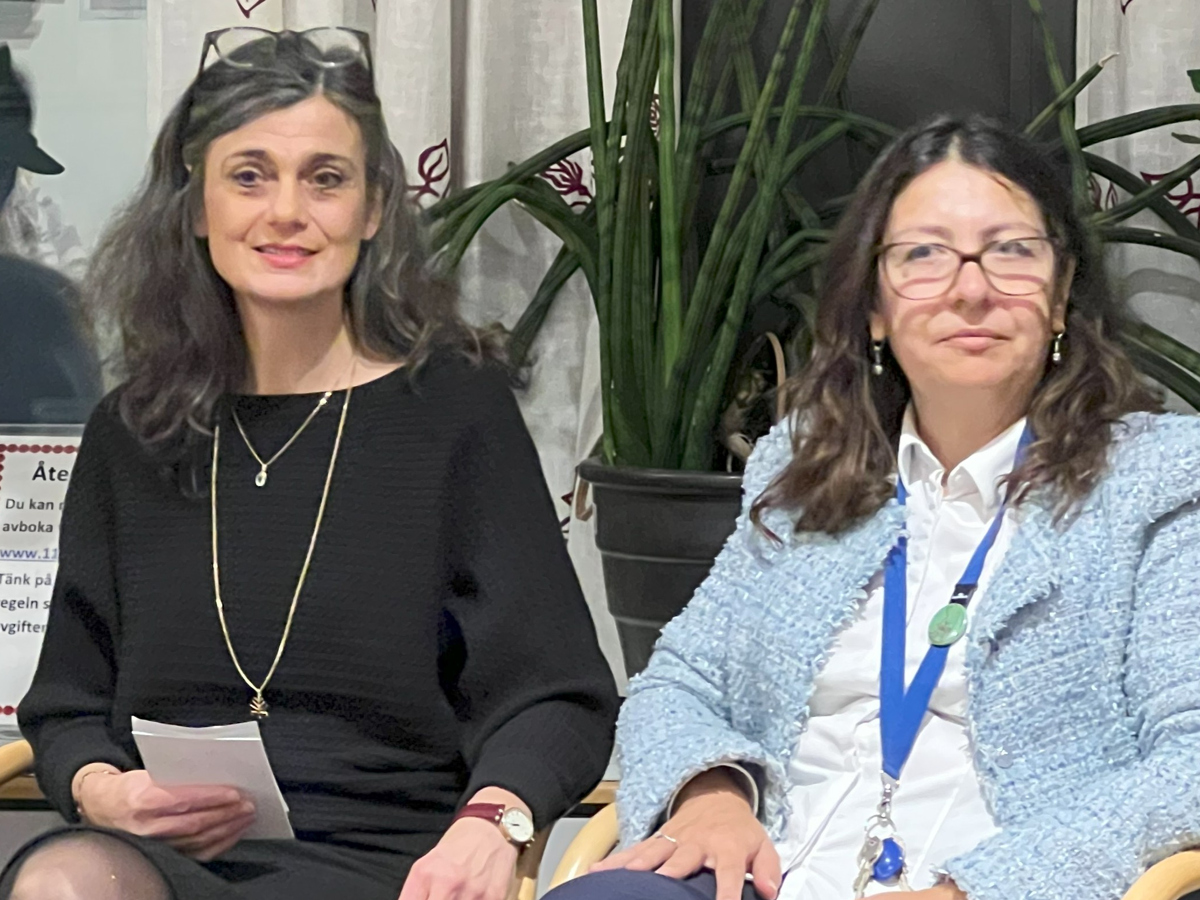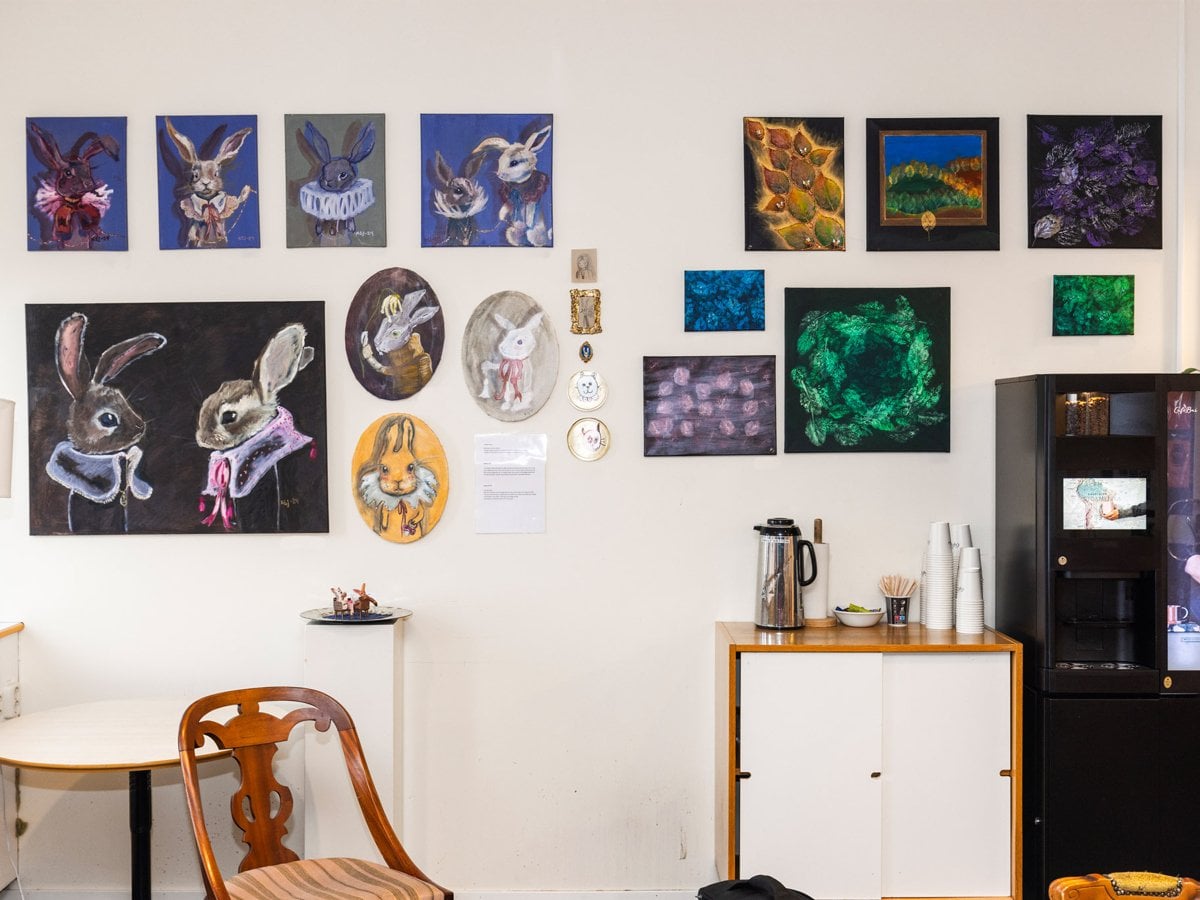
Report: Creative Workshop for Patients with Affective Disorders
Creative Workshop is a recurring group activity for patients with an artistic focus, initiated by the psychologist at the clinic. The group meets weekly and works with various creative forms of expression.
Creative Workshop offers patients a space for artistic expression beyond therapy. By focusing on process rather than performance, the initiative fosters connection, creativity, and recovery – complementing psychiatric care without replacing it.
Participating patients report that the weekly creative activity brings joy, meaning, and contributes to improved well-being. The program is led by licensed psychologist Simonetta di Girolamo (to the right on photo).
Creative Workshop is an example of how culture can be integrated into psychiatry to support recovery – without replacing medical or psychological treatment. The outcomes, which show positive results, have been evaluated by lic. psychologist Elisabeth Punzi, PhD, Gothenburg University (to the left on photo), published in Swedish by the Competence Centre for Culture and Health, Region Stockholm.

Creative Workshop from the Patient’s Perspective
Since 2017, Creative Workshop has been a recurring group activity with an artistic focus at the Affective Outpatient Clinic Globen, Södra Stockholms Psykiatri. It was initiated by psychologist Simonetta Di Girolamo and colleagues. The group meets once a week and engages in different forms of creative expression in a non-therapeutic yet structured format. The emphasis is on process rather than performance.
The activity is an example of how culture can be integrated into psychiatry as a recovery-oriented element – without replacing medical or psychological treatment.
Report - method and results
The outcomes of the project, which show positive results, have been evaluated by lic. psychologist Elisabeth Punzi, PhD, Gothenburg University, published in Swedish by the Competence Centre for Culture and Health. The report is based on interviews with eight patients and twelve staff members. The method used was Interpretative Phenomenological Analysis (IPA), which builds understanding from the ground up: through stories, associations, and emotional expressions. This method is particularly suitable for studies seeking to understand how a group of people experience and interpret shared situations.
Respondents described the value of participating in a non-demanding environment that fosters connection, creativity, and a sense of belonging. For many patients, participation also had tangible effects in everyday life – such as increased structure, reduced isolation, and improved self-esteem.
Purpose of the method
The purpose of the method is to understand how participants experience and interpret their own situations – in this case, how patients and staff perceive the significance of a creative setting within psychiatric care.
The accompanying research was carried out in 2023–2024.
- Updated: 24 september 2025
You might also be interested in

Kreativ verkstad på Affektiv mottagning
Link to page in Swedish about Creative Workshop at